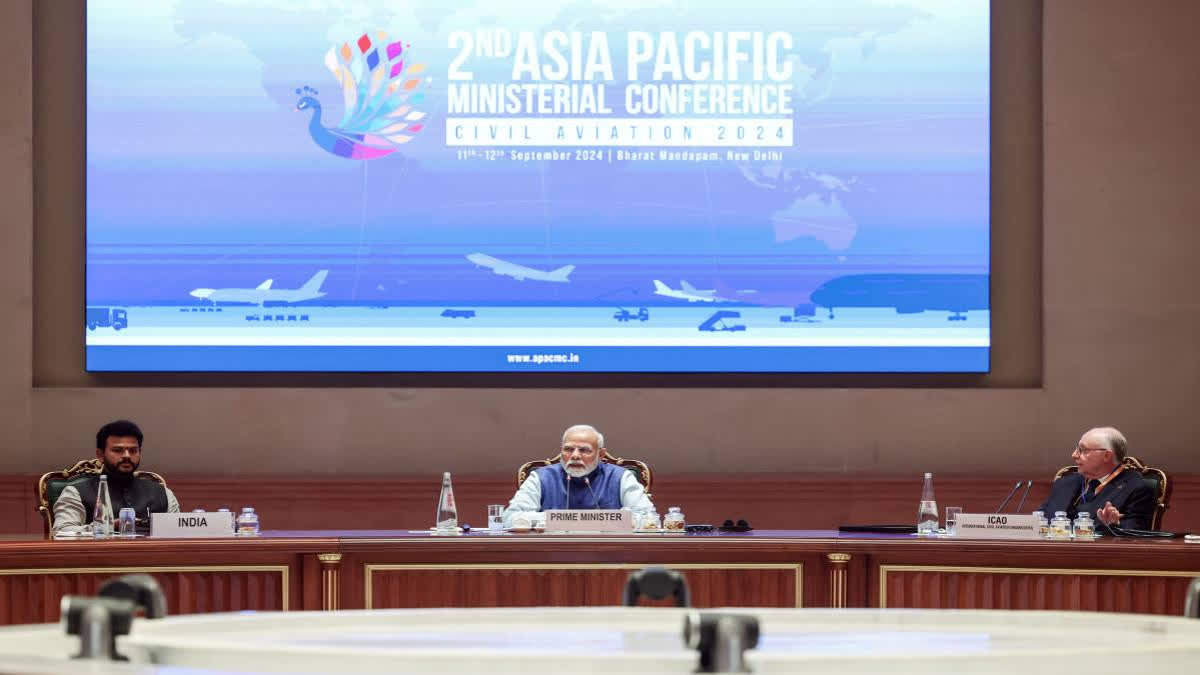New Delhi: The 2nd Asia-Pacific Ministerial Conference on Civil Aviation concluded today with the unanimous adoption of the Delhi Declaration. The announcement was made by Prime Minister Narendra Modi, marking a significant milestone in the conference.
The two-day event held here brought together delegates from 29 countries, alongside representatives from eight international organisations, including the International Civil Aviation Organization (ICAO), which celebrated its 80th anniversary during the conference.
Hosted by the Ministry of Civil Aviation, Government of India, in collaboration with ICAO, the conference gathered ministers, heads of civil aviation authorities, and key stakeholders to discuss current challenges and explore new opportunities for regional aviation.
The conference featured extensive discussions and presentations on shaping the future of aviation in the Asia-Pacific region. The Delhi Declaration, a comprehensive framework agreed upon during the conference, is aimed at enhancing regional cooperation, addressing emerging challenges, and promoting sustainable growth within the civil aviation sector.
Prime Minister Modi highlighted India's advancements in the aviation sector, emphasising the need for increased inclusivity.
"In India, 15 per cent of the pilots are women which is more than the global average of 5 per cent and we have issued an advisory to further increase this number," PM Modi said.
The Prime Minister also reflected on the transformation of India’s aviation sector over the past decade, noting the shift from an aviation-exclusive to an aviation-inclusive model. He underscored the sector's role in connecting people, culture, and prosperity.
The Prime Minister also proposed the creation of an 'International Buddhist Circuit' to connect holy sites related to Lord Buddha across Asia. He believes this initiative would benefit the civil aviation sector, travellers, and the economies of the involved countries.
Civil Aviation Minister Ram Mohan Naidu praised the PM's commitment to inclusivity and sustainability. He highlighted initiatives such as the 'Ek Ped Ma Ke Naam' campaign and the planting of 80,000 saplings to commemorate ICAO's 80 years.
Naidu also reiterated India's goal of expanding its airport network to 350-400 by 2047, positioning the nation as a key player in global aviation. He emphasised India's leadership in collaborative efforts, including its role in delivering vaccines across Asia and the Pacific during the COVID-19 pandemic.
Salvatore Sciacchitano, President of the ICAO Council, emphasised the ongoing need to prioritise safety and security in aviation, despite positive statistics. Minister of State for Civil Aviation, Murlidhar Mohol, highlighted the importance of addressing various aspects of aviation, including safety, air navigation, and green aviation.
The Draft Asia-Pacific Ministerial Declaration on Civil Aviation (Delhi Declaration) was presented, discussed, and formally adopted following ministerial deliberations.



